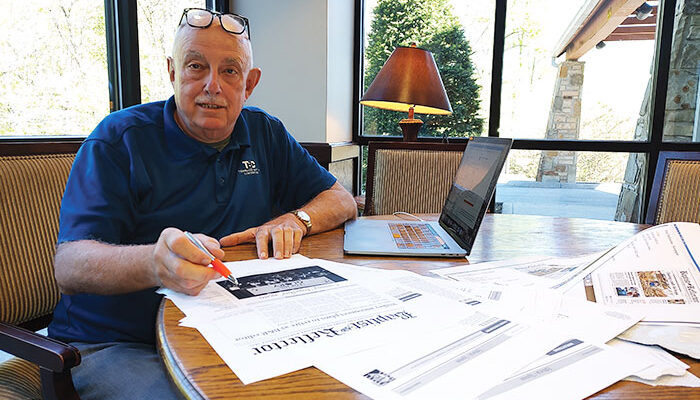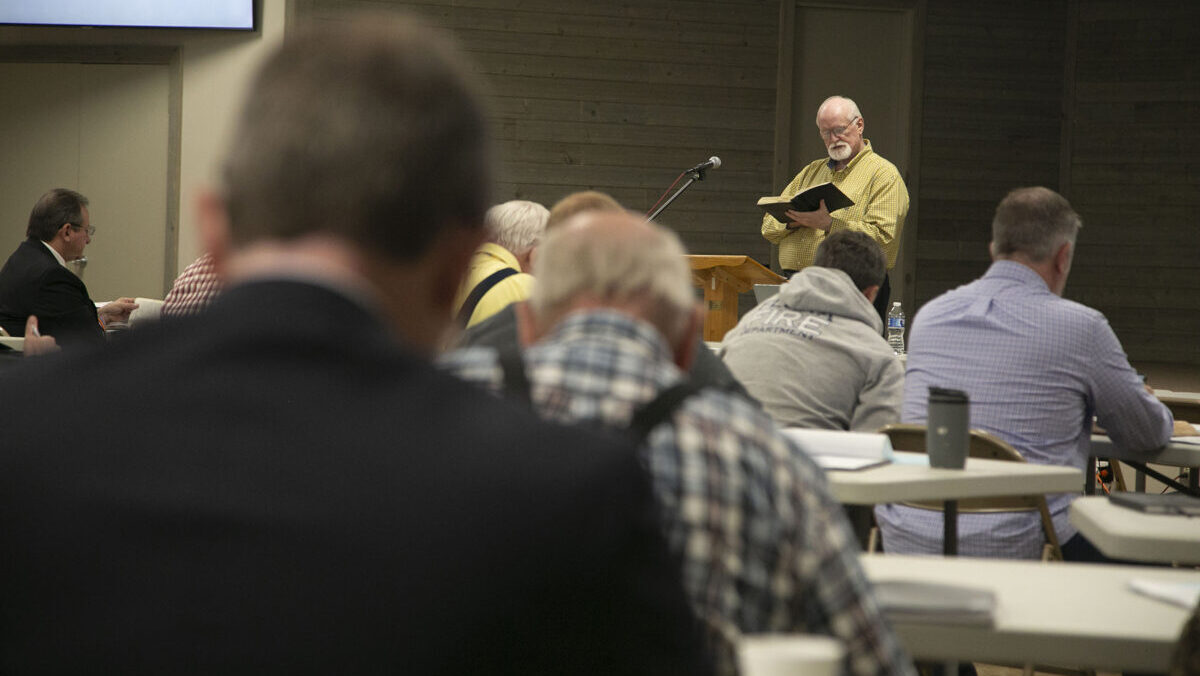By Chuck Lawless
I recently spoke to college leaders at Southeastern Baptist Theological Seminary, and my assigned topic was “Leadership Lessons I Learned as a Young Leader.” I started pastoring full-time at age 20, so I had MUCH to learn then. Here are some of those lessons I at least began learning then — though some I’m still learning to this day:
- I’m not nearly as important as I thought I was. Especially when you start leading at a young age, it’s easy to think you’re something. Life and ministry, though, have a way of teaching you otherwise. The world doesn’t wrap around us.
- Leaders who lead alone aren’t usually wise. Sure, there are times when strong leaders must stand alone. On the other hand, those leaders who continually try to lead without seeking input from others often fail — but with no one else to blame other than themselves.
- The best way to gauge leadership is to see what happens when a leader is no longer there. That’s particularly the case in Christian leadership, where leadership development is essentially discipleship at some level. If our departure leaves a gaping hole in our work, it’s likely we’ve built too much around ourselves.
- It’s easy to lead first and pray second (or not pray at all). As much as I love and write about prayer, this is one of those lessons I continually need to hear again. To only ask God to bless what we’ve already done is backwards praying. It’s right to seek God’s guidance first.
- Christian leadership is connected to Christian care and shepherding. We lead others best when they know how much we care about them. Building relationships today will thus assist us in leading in the future.
- Leadership can be hard (and even lonely). Sometimes leaders must make hard calls about staffing. Good leadership requires investing in others, experiencing their victories and their defeats. Not everyone will follow well. It’s just hard.
- The best way to learn leadership is to watch others. My best experiences in leadership have been at the feet of other stronger, more effective leaders. Reading a book or attending a conference on leadership is no comparison to having a meal with a leader.
- Leaders can become workaholics. That’s especially so when we tie our self-esteem into the product we produce. From a Christian perspective, workaholism is sometimes nothing less than idolatry.
- The minute you think you’ve “arrived,” you forfeit some of your leadership. Arrogance gets in the way of good leadership — and, others often recognize our arrogance before we do. Unchecked egos can build “kingdoms,” but they’re fleeting ones.
- Some of the most important things you do as leaders are “behind the scenes.” I include prayer, fasting and Bible study here. We lead best out of our quiet time with the Lord.
- Organizations need leaders, but they move on quickly when a leader leaves. They often must so the work goes on without delay. Some organizations replace you before you ever get out the door!
What lessons have you learned?
EDITOR’S NOTE — This story was originally published by chucklawless.com.
Daily Bible reading tips
I challenge you to love the Scriptures enough to read them at least five days a week. Find a time that works for you.
Let Bible reading become as much a personal habit as brushing your teeth first thing in the morning. Find a place that is your place for a quiet time with God. Just you, your Bible and God.
Start reading. I recommend starting in Mark’s gospel along with a Proverbs daily and a Psalm daily. Then expand into Genesis and other Old Testament books.
Plenty of Bible reading plans can be viewed on the internet. Find one that gives variety and stick with it.
Then memorize verses as a spiritual discipline. Hiding God’s Word in our heart will come in handy when temptation arises, or hard times come.
Let God’s Word make a difference in your life.
David Chancey
Georgia pastor
Invited to speak on a panel? Here’s how to ‘maximize’ the moment
By Phil Cooke
philcooke.com
Panels are a common event at conferences and seminars today, and yet few people really know how to maximize the opportunity to speak on a panel.
The best thing about a panel is that you have a chance to hear from 3–5 experts on an issue. The worst thing is that you have those 3–5 people on the panel. In other words, with up to 5 people (and a host) featured on a typical hour panel session, with introductions and a closing figured in, each person only gets 10 minutes or less to share their expertise with the audience.
So, panels can be tricky and difficult to manage.
6 tips to remember
But if you’re ever asked to speak on a conference panel, here are a few tips that will help you maximize that opportunity:
- Always answer the host’s question. Too often, inexperienced panelists don’t listen to the host because they’re thinking about what they want to say. Others default to a prepared statement, speak to their own agenda, or completely ignore the leader’s question. If you want to be asked a second time, pay attention and respond to the actual question.
- Keep it short and to the point. Remember, there are other people who need time to share, so don’t hog the session. Plus, your chance of being remembered is always better when you make clear, easy-to-understand points.
- Don’t ramble. Listening to a panelist ramble on and on is agony for the audience. They came to learn something from different speakers, not hear your life story. If you have trouble with this, keep re-reading point number 2.
- Don’t interrupt. Let the other panelists or leaders finish before you jump into the conversation. Some people have no filters and feel they have to blurt out whatever idea pops into their head, but it’s rude and inconsiderate. Be gracious with the other guests because people notice.
- Prepare just like you’re the keynote speaker. Preparation for a short presentation is often harder than preparation for a full-length speech. Mark Twain said: “If you want me to give you a two-hour presentation, I am ready today. If you want only a five-minute speech, it will take me two weeks to prepare.” Don’t assume that because it’s short, that it doesn’t require your homework.
- And a word to the leader hosting the panel: Your job is to ask questions, not be a speaker. You have the wonderful opportunity to give voice to the audience and ask the questions they’re thinking about. Don’t blow that responsibility by taking up precious time trying to be a keynote speaker. Ask questions, challenge the panelists, cut off those who go on too long and navigate the multiple viewpoints for the audience.
A panel is a challenge, but it can still convey great information and help the listeners. So next time you get the opportunity, don’t hesitate. Step up and give it a shot.
EDITOR’S NOTE — This story was originally published at philcooke.com. Reprinted with permission.
Navigating divisiveness amid another election
By Meredith Flynn
Illinois Baptist
It took a harshly worded bumper sticker to remind me that my children can read now. Four years ago, during the last contentious election cycle, we could blissfully drive by all the stickers and campaign signs without giving them a second thought. Now, though, signs calling out one candidate in favor of another raise questions — difficult ones — from the backseat.
What does that mean?
Why don’t they like them?
Do we like them?
And my own internal questions: Is it really time for another presidential election, for heightened division and angry rhetoric and damaged relationships?
Didn’t we just do this?
Whenever the pandemic anniversary comes around, I find myself asking what our family has learned over the last year. Listing the gains helps me feel like we’ve redeemed the time, the challenges, somehow. This year, I’m making a similar list on the eve of another election cycle. What did we learn four years ago, eight years ago, that can guide us through this season with more patience, more grace?
Two words come to mind: humility and perspective.
To get through this year graciously, I need to first make the decision to address the issues at hand with humility. I will aim to tell my children that neither I nor the group I identify most closely with have all the answers. I will remind them and myself that most positions, most deeply held beliefs, have a story behind them. There are reasons people feel the way they do, and understanding the reasons may be the first step in walking through a contentious season like Jesus would.
Secondly, I will try to keep an appropriate perspective on this and all future elections. Even if textbooks eventually cite this election as a milestone for our country, we know what it really signals: four more years, or however many, in which to take small steps toward more humility, more understanding, less self-aggrandizing agendas and more difficult, sacrificial decisions. In short, more opportunities to look more like Christ and less like us. We all bring stories to this season — and some of them are difficult. Jesus would care well for those stories. We should too.
EDITOR’S NOTE — This article was originally published by Illinois Baptist.









